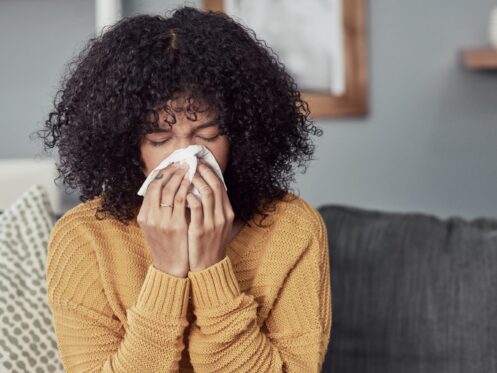Home HVAC systems don’t cause indoor air quality issues, but they can exacerbate them. The good news is that your HVAC system can help protect you throughout the allergy season here in Charlotte. That requires good maintenance habits and perhaps some key upgrades.
HVAC Maintenance
Limiting allergens in the home starts with regular deep dusting and indoor pollution source control. You should also schedule a system tune-up in the early spring. Among other tasks, a technician will clean your equipment to remove all accumulated dust and grime. At least every other year, schedule a duct camera inspection as well. Dust builds up in ducts over time, and the average household will need duct cleaning every three to five years. If the ducts are in poor condition, you may need duct sealing and other repairs. Those services can eliminate leakage that allows allergens from your attic to get into the home.
To keep up with tune-ups, we offer a Preventative Maintenance Service Agreement that helps with scheduling and comes with other perks, like repair discounts and priority service.
Air Filtration
All HVAC systems will have at least one supply vent that requires a filter. That filter helps to keep the equipment clean throughout the season and improves air quality in your living spaces. HVAC filters have a minimum efficiency reporting value (MERV). A higher MERV provides better filtration. That said, don’t choose a higher MERV than your system supports. Doing so will increase static pressure, which will reduce airflow and increase equipment wear and tear.
You should always have spare HVAC filters on hand. Check your filter at least once a month or more often if necessary, and swap the old filter with a new one as needed. You can also upgrade your air filtration with an in-duct air purifier and germicidal light. The air purifier will have a high-efficiency particulate air (HEPA) filter. HEPA filters trap at least 99.97% of particulates. They will also have activated carbon that absorbs gases and airborne chemicals. The germicidal light, which will be separate from the air purifier, will neutralize bacteria, viruses, and other pathogens.
Automatic Temperature Adjustment
The goal for optimal HVAC is to run the system only as often as needed. A programmable or smart thermostat can be a big help in that regard. Set a schedule, and the thermostat will adjust your temperature automatically. It will limit how often the system runs, particularly when you’re sleeping or away from home. You can also opt for a smart thermostat with features like indoor air quality monitoring and filter change reminders.
Air Circulation
Air circulation within your home can help to lower allergen concentration levels. Higher airflow results in more dilution and removal. Your HVAC system will provide significant air circulation during its cycles. Of course, you want to minimize those cycles. That’s why experts recommend having ceiling fans in all rooms where they’re practical. Be sure to keep them well dusted, as dirty ceiling fans can do more harm than good.
Ventilation
Ventilation is even more important than circulation when it comes to allergen control. Most cooling and heating systems don’t draw in fresh air. That means many homes are relying entirely on passive ventilation, which may not be enough. There are several ways to improve ventilation in an HVAC system. The most basic option is a whole-house fan. Heat recovery ventilators (HRVs) are advanced whole-house fans. They can preheat or precool the fresh air, which means you can run them year-round. There are also energy recovery ventilators (ERVs). ERVs are similar to HRVs but can add or remove moisture from the incoming air as well.
Humidity Control
Relative humidity (RH) measures humidity within the context of temperature. It’s a notable factor for allergy sufferers in several ways. The optimal RH varies from person to person but is generally between 30% and 60%. When RH is too low or high, it can cause inflammation in the respiratory system. That can make a person more prone to severe allergy symptoms. When RH is high, the air itself is more prone to allergens, including mold spores and dust mites. A dehumidifier will help you keep RH at 60% or lower in summer. A humidifier will help you keep it at 30% or higher in winter.
Better Indoor Air Quality for Your Home
Putnam Mechanical is a family-owned and operated heating and air conditioning company in Mooresville, NC and serves the greater Charlotte area.
We proudly employ NATE-certified technicians who help our customers breathe easier and enjoy the health benefits of improved indoor air quality. Our services include cooling and heating tune-ups. We also install and service ventilation systems, ceiling fans, smart thermostats, and more. For more information about how we can help you, reach out to us today.
